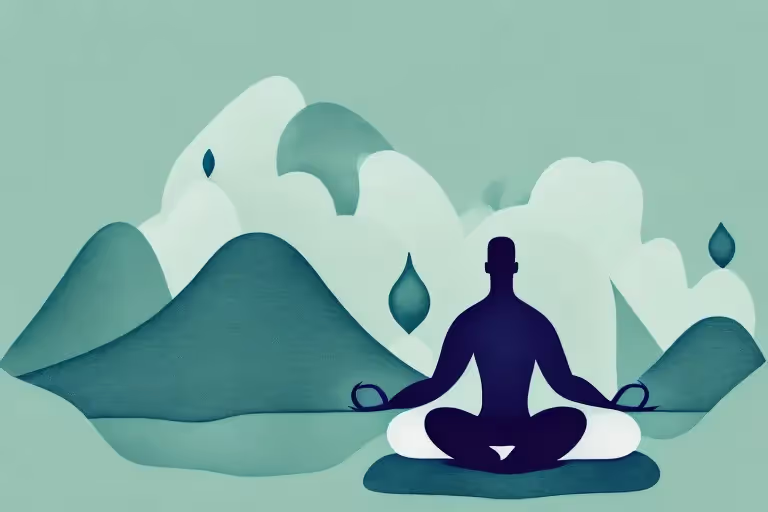Embarking on a journey to understand ourselves on a deeper level can lead us to an enigmatic little gland nestled between the two hemispheres of our brain - the pineal gland. Activating this gland through the practice of meditation may unlock doors to enhanced spiritual awareness, improved sleep patterns, heightened intuition, and increased creativity. This discussion explores the understanding and benefits of pineal gland activation, the science behind it, and the meditation techniques to stimulate this pivotal gland.
Understanding the Pineal Gland
The pineal gland is a frequently overlooked yet crucial part of our bodily system. Despite its small size - about the size of a grain of rice - it plays substantial roles in our physical, mental, and spiritual health.
Located deep within the brain, the pineal gland is often referred to as the "third eye" due to its unique structure and function. It is shaped like a pinecone, hence its name, and is situated between the two hemispheres of the brain.
One of the primary functions of the pineal gland is the regulation of hormones related to sleep. It releases a hormone called melatonin, which maintains our sleep-wake cycle. This hormone is responsible for signaling to the body when it is time to rest and when it is time to wake up.
But the pineal gland's influence goes beyond just sleep. It also impacts our mental state, playing a role in our overall mood and emotional well-being. This is because the pineal gland is closely connected to our circadian rhythm, the internal clock that governs our daily physiological processes.
Aura has the world’s largest and best collection of Meditations and hundreds of Coaches to choose from.
Try it Free!
The Role of the Pineal Gland in the Body
Our biological clock is largely controlled by the pineal gland as it releases a hormone called melatonin, which maintains our sleep-wake cycle. More than just regulating sleep, it also influences our mood and circadian rhythm, hence playing a part in our overall mental health.
Furthermore, recent research has suggested that the pineal gland may have additional functions beyond sleep regulation. It has been found to be involved in the production and release of other important neurotransmitters, such as serotonin and dopamine, which are essential for mood regulation and emotional well-being.
Interestingly, the pineal gland has also been associated with spiritual experiences and consciousness. Throughout history, the pineal gland has been revered in various cultures and religions. In many spiritual contexts, it is referred to as the "third eye" and symbolizes awakening or enlightenment.
Ancient civilizations believed that the pineal gland was the seat of the soul and the gateway to higher realms of consciousness. They believed that by activating and nurturing the pineal gland, one could access spiritual insights and transcend the limitations of the physical world.
The Connection Between the Pineal Gland and Meditation
The pineal gland and meditation share an intertwined relationship. Meditation is a practice that can slow down brain wave activity, thereby sparking a rise in melatonin levels. This, in turn, impacts the functionality and health of the pineal gland.
When we meditate, our brain enters a state of deep relaxation and heightened awareness. This state is associated with an increase in melatonin production, which can have a profound effect on the pineal gland. As melatonin levels rise, the pineal gland becomes more active and responsive, leading to a heightened sense of spiritual awareness.
Masters of meditation often report experiencing deeper spiritual awareness and altered states of consciousness, which may be, in part, attributed to the pineal gland's activation. It is believed that through regular meditation practice, one can strengthen the connection between the pineal gland and the higher realms of consciousness, leading to a greater sense of inner peace and enlightenment.
In conclusion, the pineal gland is a remarkable organ that plays a multifaceted role in our physical, mental, and spiritual well-being. From regulating our sleep-wake cycle to influencing our mood and consciousness, it is an integral part of our overall health. Exploring the fascinating connections between the pineal gland and various aspects of our lives can deepen our understanding of this often overlooked but profoundly important gland.
The Science Behind Pineal Gland Activation
Various scientific studies have begun to unravel the secrets of how pineal gland activation works and why it can prosper mental well-being. The pineal gland, also known as the "third eye," is a small endocrine gland located deep within the brain. It plays a crucial role in regulating various bodily functions, including sleep-wake cycles, mood, and even the aging process.
One fascinating aspect of pineal gland activation is the impact of meditation. Research suggests that practices like meditation can lead to enhanced production of melatonin, a hormone secreted by the pineal gland. Melatonin is responsible for regulating our sleep cycles, and its levels have a direct influence on our mood and overall well-being. By meditating regularly, individuals may experience improved sleep quality, enhanced mood, and possibly even slowed aging.
Moreover, it has been speculated that meditation might assist in the decalcification of the pineal gland, an essential step towards its activation. The pineal gland can accumulate calcium deposits over time, which can hinder its proper functioning. By engaging in meditation practices, individuals may potentially facilitate the removal of these deposits, allowing the pineal gland to function optimally.
The Impact of Meditation on the Pineal Gland
Scientific studies have delved deeper into the impact of meditation on the pineal gland. Renowned institutions, such as the Johns Hopkins Center, have published studies noting the potential impact of mindfulness meditation on anxiety, depression, and pain management, indirectly linking it with the pineal gland's functionality.
One study conducted at the Johns Hopkins Center explored the effects of an eight-week mindfulness meditation program on individuals suffering from anxiety disorders. The results showed a significant reduction in anxiety symptoms, suggesting a potential connection between the practice of meditation and the regulation of the pineal gland.
Another study conducted at the University of California, Berkeley, investigated the effects of meditation on depression. The findings indicated that individuals who engaged in regular meditation practices experienced a decrease in depressive symptoms, further highlighting the potential role of the pineal gland in mood regulation.
Scientific Studies Supporting Pineal Gland Activation
Numerous other studies lend support to these findings, further establishing meditation as a promising tool for holistic well-being. A study published in the Journal of Pain Research explored the effects of meditation on pain management. The results showed that individuals who practiced meditation experienced a significant reduction in pain intensity and improved pain tolerance, suggesting a potential link between the pineal gland and pain regulation.
Additionally, a study conducted at the National Institute on Aging investigated the effects of meditation on aging. The findings revealed that individuals who engaged in long-term meditation practices displayed slower cellular aging, as measured by the length of telomeres, which are protective caps at the end of our chromosomes. This suggests a potential role of the pineal gland in the aging process and raises intriguing possibilities for further research.
In conclusion, the science behind pineal gland activation is a fascinating area of study. The impact of meditation on the pineal gland, as supported by scientific research, offers promising insights into the potential benefits of this practice for mental well-being. As more studies continue to explore this intriguing connection, we may unlock even more secrets about the pineal gland and its role in our overall health and happiness.
Benefits of Pineal Gland Activation
Imagine seeing the world with a newfound sense of clarity and understanding. With the activation of the pineal gland, such experiences might become an everyday reality.
The pineal gland, often referred to as the "third eye," has long been associated with spiritual and metaphysical experiences. Located deep within the brain, this small, pinecone-shaped gland is believed to be the gateway to higher consciousness and enlightenment.
When the pineal gland is activated, individuals often report a heightened sense of spiritual awareness. Meditators, in particular, have attested to an increased understanding of their spiritual selves upon successful pineal gland activation. This awakening could facilitate a deeper connection with the universe and an improved personal sense of spirituality.
But the benefits of pineal gland activation extend beyond the realm of spirituality. One of the most noticeable effects is the improvement in sleep patterns. The pineal gland plays a cardinal role in regulating the body's circadian rhythm, also known as the sleep-wake cycle. By activating the pineal gland, individuals may find themselves waking up more rested and rejuvenated, thereby increasing their productivity throughout the day.
Furthermore, the activation of the pineal gland has been associated with increased intuition and creativity. As part of the brain associated with higher consciousness, the pineal gland's activation can lead to heightened intuition and creativity. This can result in a newfound ability to manifest innovative ideas or make decisive choices in key life situations.
It is important to note that pineal gland activation is not a quick fix or a magical solution. It requires consistent practice and dedication to spiritual and personal growth. Techniques such as meditation, breathwork, and visualization are often used to stimulate the pineal gland and facilitate its activation.
Overall, the benefits of pineal gland activation are vast and profound. From enhanced spiritual awareness to improved sleep patterns and increased intuition, activating the pineal gland can unlock a world of possibilities. So, why not embark on a journey of self-discovery and explore the potential of your own pineal gland?
Meditation Techniques for Pineal Gland Activation
Ready to tap into the power of your pineal gland? Here are some meditation techniques that can aid in this process.
Guided Meditation for Pineal Gland Activation
For those new to meditation, guided meditation can be a convenient starting point. It involves following along with a recorded voice that guides you through the process, often incorporating visualization techniques to stimulate the pineal gland.
Breathing Techniques to Stimulate the Pineal Gland
Practices such as Pranayama, an ancient yogic breathing technique, can stimulate the pineal gland. It involves controlling the breath to calm the mind and body, promoting a state of relaxation that's prime for pineal gland activation.
Visualization Techniques for Pineal Gland Activation
Visualizing light entering your third eye or pineal gland during meditation can contribute to its activation. This allows for a sense of peace and calm to permeate, alleviating stress and encouraging positive mental health.
Precautions and Considerations for Pineal Gland Activation
While the benefits of pineal gland activation can be enticing, it's vital to tread with caution as this process is not for everyone.
Potential Side Effects of Pineal Gland Activation
Some people might experience temporary discomforts such as headaches or vivid dreams. It's advisable to speak with a healthcare professional before starting any new practices.
Who Should Avoid Pineal Gland Activation
Individuals with certain conditions, such as bipolar disorder or schizophrenia, might be more susceptible to adverse effects from these practices. Again, it's crucial to consult with a professional who can assess your personal situation.
In conclusion, meditating for pineal gland activation can open a window to a profound world of spiritual wisdom and self-awareness. The Aura Health app offers a myriad of guided meditations that can help you venture into this transformative practice in a safe and supportive way. With Aura's personalized meditation practices, you get to embrace a journey that doesn't just cater to your spiritual needs, but also prioritizes your mental health wellness.
Aura is Your All In One App for Meditation, Mindfulness Wellbeing
Find peace every day with one app for your whole well-being. There is no one-size-fits-all solution to mental well-being. Aura is the first all-in-one wellness app that learns how to best help you. Discover an endless library of expert-created tracks for your well-being, all taught by the world’s best coaches, therapists, and storytellers. With Aura's personalized recommendations, you can find peace every morning, day and night.



.webp)






.avif)

%20(1).avif)


.avif)
.avif)
.webp)


.avif)


















































































































.avif)

















.svg)









